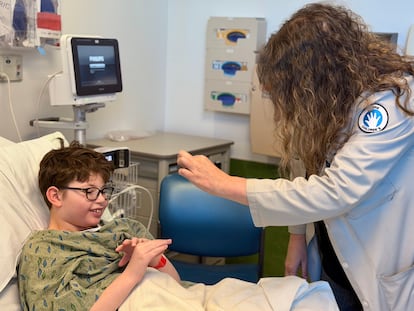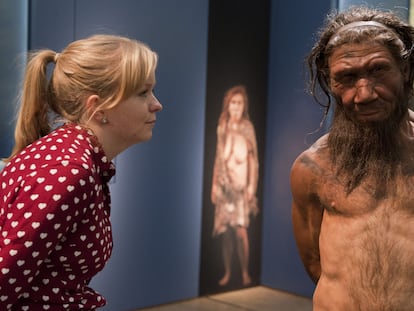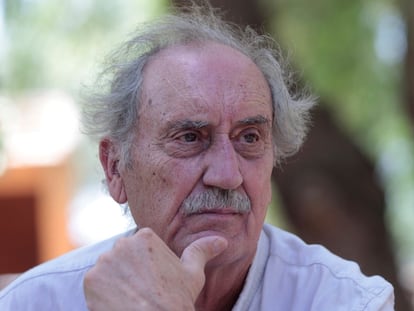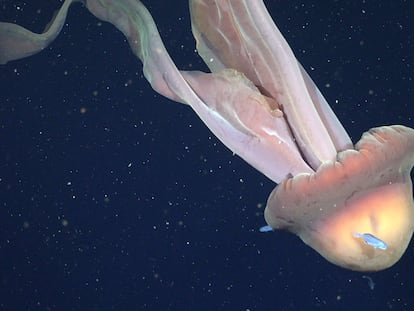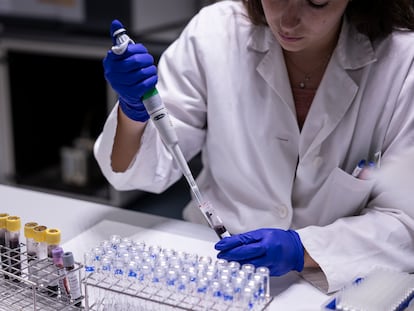The first gene-regulating treatment for epilepsy achieves promising results in an initial trial with 81 patients
After learning that they carry a mutated version of the BRCA1 gene, their options were to undergo intensive monitoring every six months or to have preventive surgeries involving profound changes to their bodies and their lives
A study reveals that the rate of new cases in those over 55, who still make up the majority, remains stable, but diagnoses are increasing at younger ages
Pelagic ctenophores are a type of gelatinous animal that gets carried along by water currents. The country has now registered 15 of these species– six for the first time
The study of fossilized resin stones containing several creatures allowed scientists to recreate the interactions between various species of the distant past
A study shows that interbreeding between the two species occurred primarily in one direction, and the origin of this bias is still unclear
The experimental drug is an ultrasensitive version of CAR-T therapies, which have already revolutionized the treatment of leukemias and lymphomas
‘Alnashetri cerropoliciensis’ belongs to a strange carnivorous lineage that refutes the idea of the progressive miniaturization of its group
Scientist Laura Soucek, who removed tumors from rodents almost 20 years ago, invokes the ‘moral duty’ not to generate false expectations after Mariano Barbacid’s announcement
One in three recipients of the state-funded Atrae program comes from the United States
The work of numerous mathematicians culminated in the discovery of hyperbolic geometry; today, thanks to virtual reality, it is possible to glimpse it beyond its formulas
The scientist is author of one of the most influential works in the history of tumor research
‘It seemed deeply unfair that in this era of precision medicine, where targeted therapies are the treatment of choice for cancer in humans, they didn’t exist for cats,’ says the senior author of the study
An international team of scientists led by the American paleontologist Paul Sereno spent three months in an extreme and hostile landscape before finding ‘Spinosaurus mirabilis’ skull material for the first time in over a century
The researcher reviews the latest advances in sleep science: ‘You can train yourself to have more lucid dreams. This is even used for therapeutic purposes’
Scientific literature provides evidence that the way we breathe influences neural areas related to attention, memory, smell, and emotions
The model allows for the precise and complex modification of cells and molecules to cure diseases
The French paleoanthropologist discusses his book ‘The Last Neanderthal,’ and provides clues about his latest discovery: ‘It’s possible that other, completely unknown human populations existed’
The newly discovered microorganism appears to show resistance to a dozen modern antibiotics, but it also inhibits the growth of other bacteria
The science communicator, a disciple of Stephen Hawking, believes it will be decades before we colonize Mars. But he says we could soon find extraterrestrial life
EL PAÍS reconstructs a record‑breaking weekend of simultaneous surgeries and helicopter organ transfers to save four lives within a critical window
The researcher and science communicator has a new book out on carbon, ‘the spinal column of life’ that helps answer fundamental questions about our origin, our existence and our destiny
The ‘Stygiomedusa gigantea’ was recorded at a depth of 250 meters. Its four arms can reach up to 10 meters in length
Their behaviors are similar, but their needs are different
An analysis of more than 36 million articles written by women shows that the gender gap in research is also reflected in specialized journals
The biochemist’s company, Vega Oncotargets, has toned down its message after the false expectations generated by the announcement of a promising experiment with 45 ‘cured’ mice

